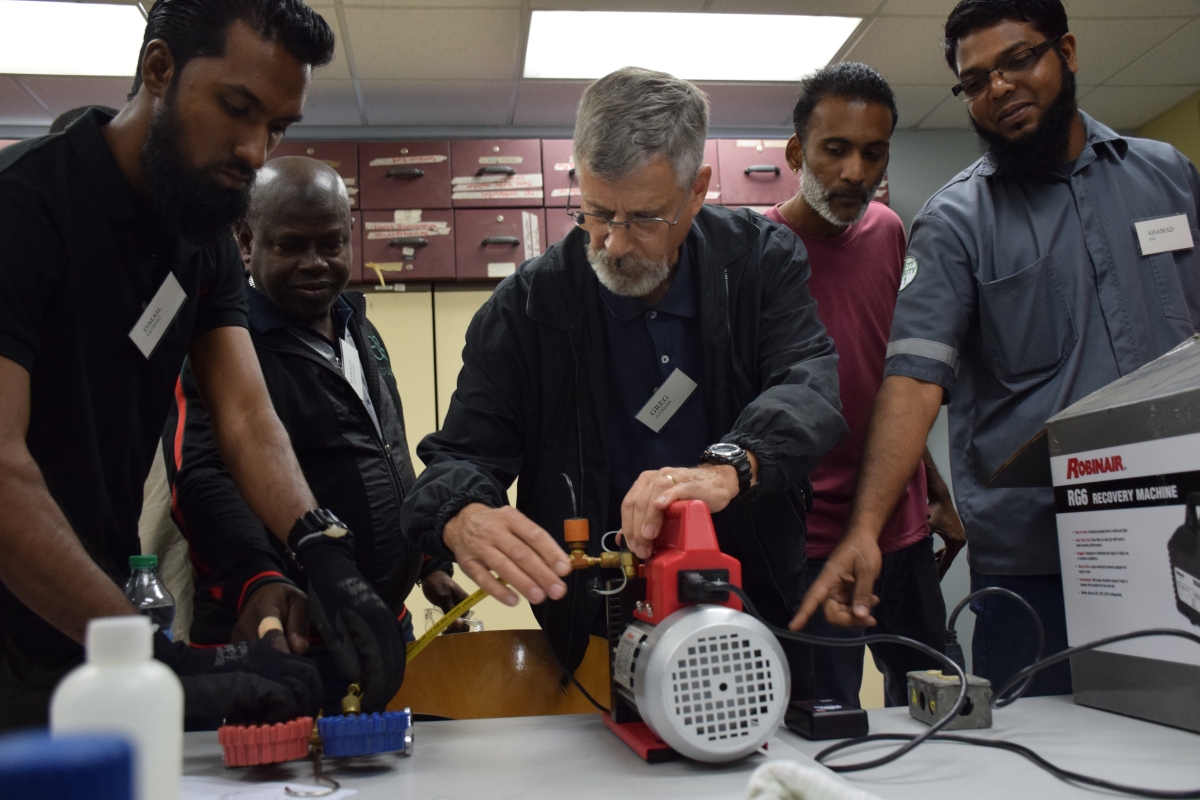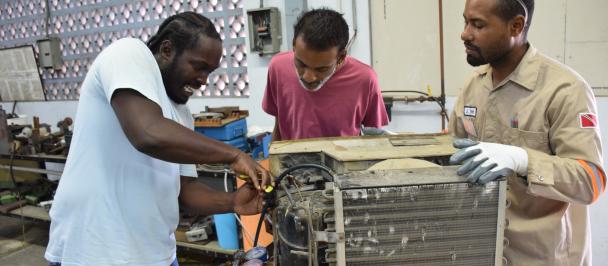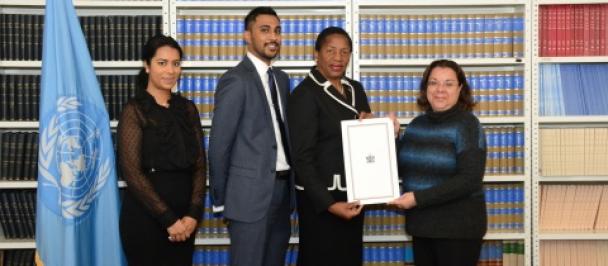Energy Efficiency through the Development of Low Carbon RAC Technologies
Representatives of T&T’s refrigeration and air conditioning sector test out some modern equipment.
Energy Efficiency through the Development of Low-carbon RAC Technologies
The Energy Efficiency through the Development of Low-carbon RAC Technologies project is seeking to develop low-carbon refrigeration and air conditioning technologies that reduce greenhouse gas emissions, as part of a wider partnership programme between the Government of Trinidad and Tobago and the UNDP, in support of the country’s international commitments to combat climate change.
The US$5.5m project, funded by the Global Environment Facility (GEF) - is one of several sustainable energy and environment programmes being managed by the UNDP on behalf of the Government, working closely with the Ministry of Planning and Development. The projects support national priorities in the energy, environment and disaster risk reduction arena by strengthening environmental policy, regulatory and institutional frameworks; developing energy efficient technologies, practices and public education; and supporting greater disaster-risk resilience.
Working with a diverse group of stakeholders, including public agencies, academia and civil society organisations, the long-term goal of the GEF project, is to address the use of ozone depleting substances within the refrigeration and air conditioning (RAC) sectors, both public and private, and to contribute to the stated national goal of a 15% reduction in greenhouse gas (GHG) emissions by 2030.
The project aims to address Trinidad and Tobago’s international commitments under the Montreal Protocol an international treaty to protect the ozone layer by phasing out the production and consumption of numerous substances that are responsible for ozone depletion and the United Nations Framework Convention to Combat Climate Change (UNFCCC) which is designed to address global warming by reducing carbon emissions.
About the GEF
The Global Environment Facility (GEF) was established on the eve of the 1992 Rio Earth Summit to help tackle our planet’s most pressing environmental problems. Since then, the GEF has provided close to $20.5 billion in grants and mobilized an additional $112 billion in co-financing for more than 4,800 projects in 170 countries.

 Locations
Locations

